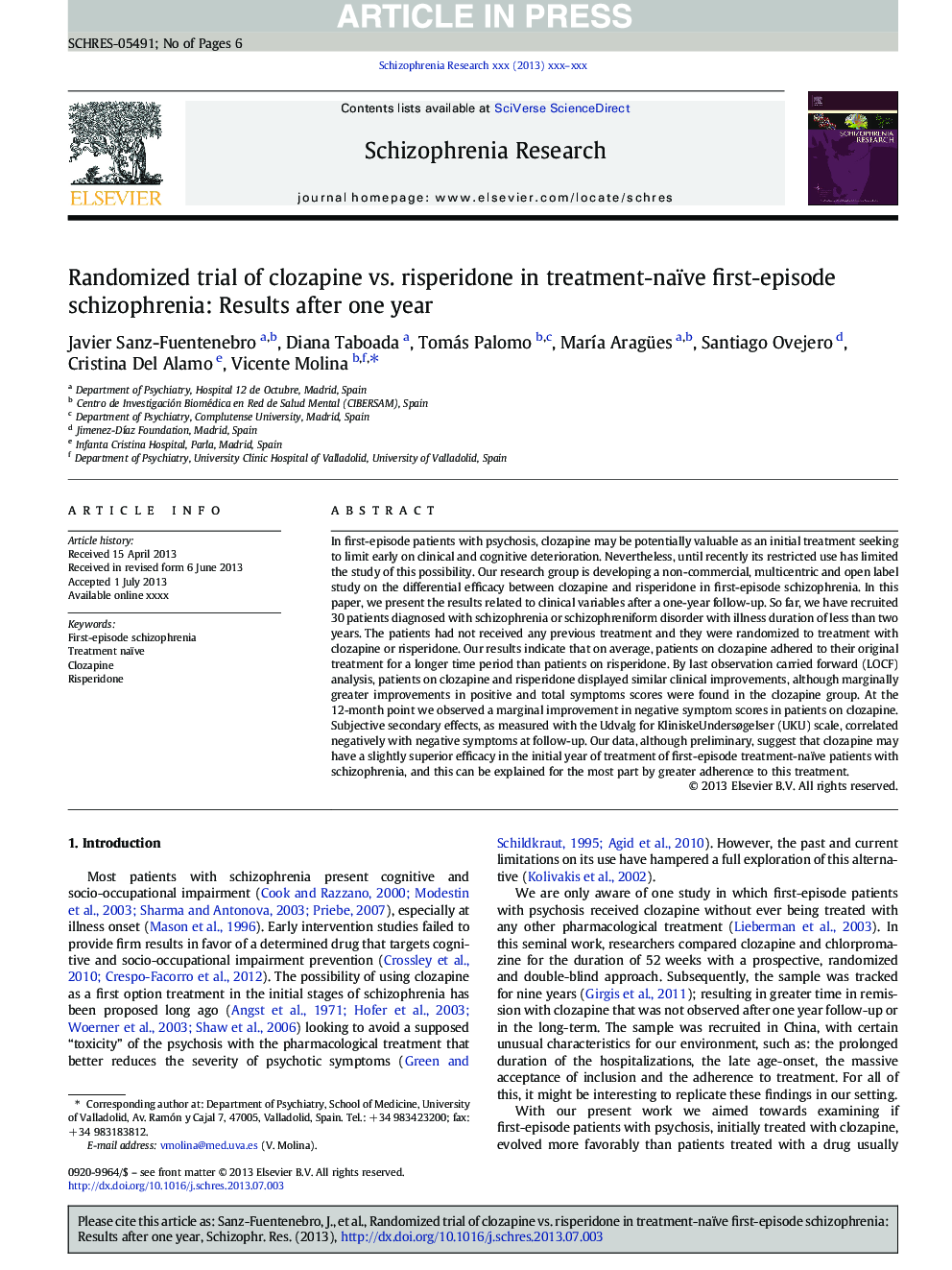| Article ID | Journal | Published Year | Pages | File Type |
|---|---|---|---|---|
| 6825972 | Schizophrenia Research | 2013 | 6 Pages |
Abstract
In first-episode patients with psychosis, clozapine may be potentially valuable as an initial treatment seeking to limit early on clinical and cognitive deterioration. Nevertheless, until recently its restricted use has limited the study of this possibility. Our research group is developing a non-commercial, multicentric and open label study on the differential efficacy between clozapine and risperidone in first-episode schizophrenia. In this paper, we present the results related to clinical variables after a one-year follow-up. So far, we have recruited 30 patients diagnosed with schizophrenia or schizophreniform disorder with illness duration of less than two years. The patients had not received any previous treatment and they were randomized to treatment with clozapine or risperidone. Our results indicate that on average, patients on clozapine adhered to their original treatment for a longer time period than patients on risperidone. By last observation carried forward (LOCF) analysis, patients on clozapine and risperidone displayed similar clinical improvements, although marginally greater improvements in positive and total symptoms scores were found in the clozapine group. At the 12-month point we observed a marginal improvement in negative symptom scores in patients on clozapine. Subjective secondary effects, as measured with the Udvalg for KliniskeUndersøgelser (UKU) scale, correlated negatively with negative symptoms at follow-up. Our data, although preliminary, suggest that clozapine may have a slightly superior efficacy in the initial year of treatment of first-episode treatment-naïve patients with schizophrenia, and this can be explained for the most part by greater adherence to this treatment.
Related Topics
Life Sciences
Neuroscience
Behavioral Neuroscience
Authors
Javier Sanz-Fuentenebro, Diana Taboada, Tomás Palomo, MarÃa Aragües, Santiago Ovejero, Cristina Del Alamo, Vicente Molina,
